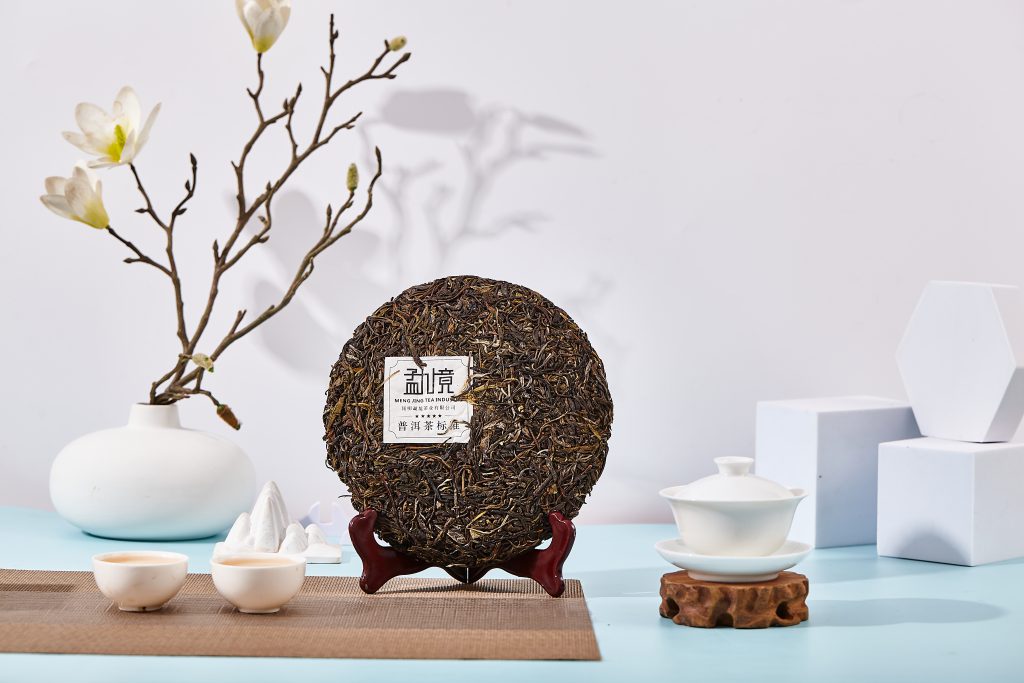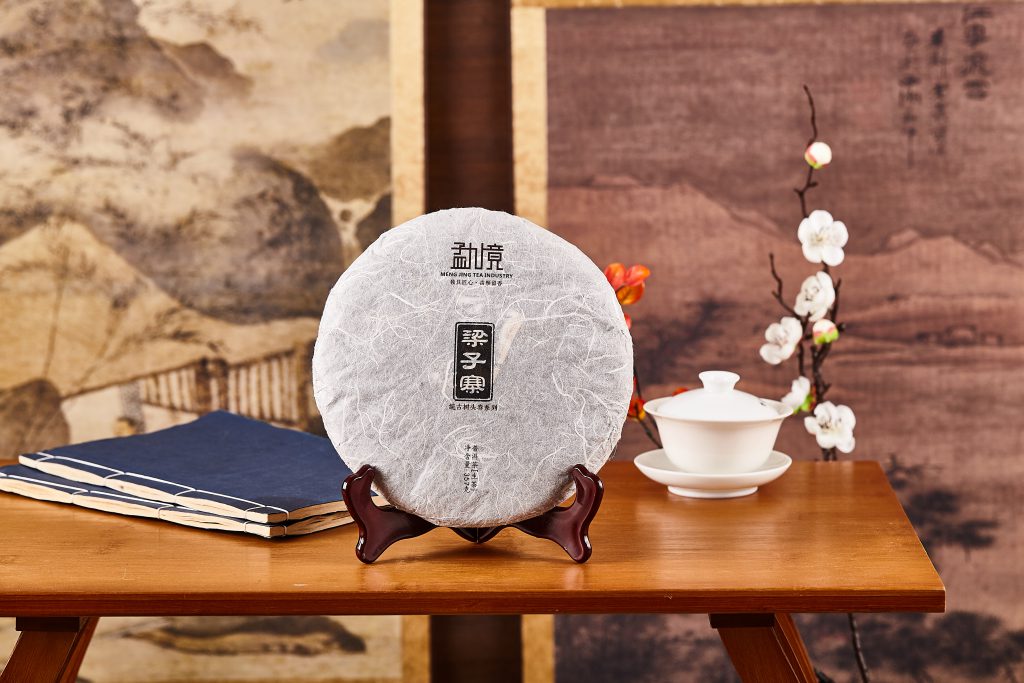Your cart is currently empty!
What is the different between raw tea and ripe tea?

The main difference between raw tea and ripe tea lies in their fermentation processes. Raw tea is made from fresh tea leaves through fixation, rolling and drying. It has not undergone artificial fermentation, retaining the original flavor and aroma of the tea leaves. The taste is relatively refreshing and the nature of the tea is cool, suitable for people who like a fresh taste. While ripe tea is made on the basis of raw tea through artificially accelerated fermentation, which darkens the color of the tea leaves, makes the taste mellow, changes the nature of the tea to warm, and has a unique aged aroma. It is suitable for people who like a rich taste and health benefits. Both have their own characteristics and meet the taste needs of different groups of people.
The differences between pure material tea and terrace tea are as follows:

Source of raw materials:
Pure material tea usually comes from the same tea garden, the same tea tree species, or even the same batch of tea leaves. While terrace tea generally refers to the tea that is artificially and extensively planted in tea gardens.
Growth environment:
Pure material tea may grow in areas with better natural ecological environments and are relatively independent. Terrace tea often grows in planned and managed tea gardens with a higher density.
Quality characteristics:
Because of the consistency of the source, the quality characteristics of pure material tea are relatively stable and unique, with relatively obvious individual characteristics. Terrace tea, due to large-scale planting and management, has relatively uniform quality.
Taste and flavor:
The taste of pure material tea may be more rich and delicate, with a unique regional flavor. The taste of terrace tea may be relatively plain and lack a unique charm.
Price:
Generally speaking, high-quality pure material tea often has a higher price due to its uniqueness and scarcity. Terrace tea, due to its large output, has a relatively affordable price.
Some tea lovers who pursue high quality and unique taste are keen on finding precious pure material tea, while for the daily large consumption demand, terrace tea can meet the basic tea drinking needs.
* Our product is 100% pure material tea, made from high-quality tea leaves.
Main tea-producing famous villages
1. Bingdao Village
Bingdao Village is located in the northern part of Mengku Town, Shuangjiang Lahu-Va-Blang-Dai Autonomous County, Lincang City, Yunnan Province, between latitude 22°N and longitude 99°E. Iceland Village governs five villagers’ groups: Iceland, Dijie, Nanpo, Bawai, and Nuowu. It is renowned for the saying, “The five villages of Iceland, each village produces great tea.”Bingdao tea is highly priced due to its scarce output and has great collection value.
Aroma
The aroma is elegant and the fragrance type is special, mainly featuring floral and fruity scents, accompanied by the fragrant aroma of plants like moss and soil. After brewing the new tea and leaving it for a while, when drinking it cold, there is a very refreshing sweet aroma of rock sugar, which is not possessed by other teas.
Flavour
The most notable characteristic of Bingdao tea is its sweet and refreshing taste. When the tea soup enters the mouth, the first thing you feel is a fresh sweetness. This kind of sweetness is not the cloying sweetness of sugar, but a natural sweetness derived from the tea leaves themselves, refreshing without losing depth. After swallowing the tea soup, a lasting sweet aftertaste gradually emerges in the mouth. This kind of sweet aftertaste is not only intense but also has distinct layers, as if countless tiny sweet molecules are jumping on the tip of the tongue, bringing an extremely pleasant feeling.
2. Mansong Village
Mansong Village is located in Yiwu Township, Mengla County, Xishuangbanna Dai Autonomous Prefecture, Yunnan Province. It has an altitude of 1,067 meters, an average annual temperature of 18.9℃, and an annual precipitation of 1,353.7 millimeters.Mansong Village is a very famous origin of tribute tea. During the Chenghua period of the Ming Dynasty, after Emperor Xianzong tasted it, he was full of praise and designated Mansong tea as the royal tribute tea. This continued until the Qing Dynasty, and Mansong tea has always been the exclusive tribute tea for the royal family.
Aroma
Mansong has a fresh and elegant fruit aroma, herbal aroma and a light mountain wild aroma. Moreover, the aroma is well-structured. From the first infusion to multiple infusions, the aroma will gradually show different characteristics. When initially infused, the aroma of the tea may be relatively fresh and delicate. With the increase in the number of infusions, the aroma of the tea will gradually become rich and complex, showing more layers.
Flavour
The taste of Mansong is soft and smooth, making people feel comfortable and satisfied. During the tasting process, one can clearly feel the sweet aftertaste. After tasting with the tip of the tongue, a lasting sweet fragrance will remain in the mouth for a long time. This sense of sweet aftertaste makes Mansong even more beloved.
3. Xigui Village
Xigui Village is located in Bangdong Township, Lincang City, Yunnan Province, China. Here, it is located beside the Lancang River. The terrain of Xigui Village is rather rugged, mostly consisting of mountains and hills. The altitude is approximately 950 meters. The annual average temperature is 21℃, and the annual precipitation reaches 1,200 millimeters. Such climatic conditions are very conducive to the growth of tea trees.
Aroma
The aroma of Xigui Pu’er tea is special. After brewing, it has a strong and prominent fragrance, similar to the aroma of orchids. After 4 to 6 infusions, the aroma of rock sugar gradually becomes apparent.
Flavour
The taste in the mouth is thick, strong, and full, with high bitterness and high sweetness. The aroma is sharp and intense, the tea qi is strong, and the production of saliva is excellent. However, the soup feels smooth, accompanied by a strong sweet aftertaste and the production of saliva, and the fragrance lingers in the mouth for a long time.
4. Xiaohusai
Xiaohusai is located in Gongnong Village Committee, Mengku Town, Shuangjiang Lahu-Va-Blang-Dai Autonomous County, Lincang City, Yunnan Province. It is a mountainous area consisting of three villages, namely a Han village and two Lahu villages. The altitude is approximately 1,800 meters.
Aroma
The ancient tree tea of Xiaohusai has a unique aroma. After brewing, it emits a rich honey fragrance. This aroma is long-lasting and pleasant, which is a major highlight when tasting Xiaohusai tea.
Flavour After the tea soup enters the mouth, the taste is mellow, soft, sweet, and the sweet aftertaste and the production of saliva are quick, lasting, and intense. The throat rhyme is long. This kind of fullness and layering in the taste makes Xiaohusai tea unique among Pu-erh teas.
